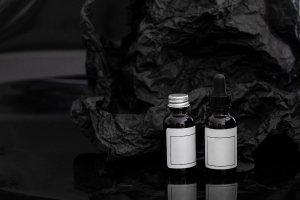

Have you ever engaged in that irritating internal conflict? Not battling an external foe, but attending to your itchy scalp? It’s just too much—the constant scratching, the never-ending dandruff snowstorm, and the constant self-consciousness.
Don’t you worry, my friend; today, we’re bidding goodbye to dandruff and sharing easy homemade remedies for a tingling scalp that will restore its happiness. We’ll identify the cause of your scalp irritation in this blog, provide you with simple at-home remedies for itchy scalp treatment, and show you how to lead a stress-free lifestyle. Bid farewell to itchiness and welcome to self-assured, flake-free hair!
So, let’s get started and put a stop to that itch permanently!
Causes of Itchy Scalp Reasons
If your scalp is playing host to an annoying scratch-scratch-scratch party, there can be various causes of itchy scalp. Dry skin, often worsened by harsh shampoos or chilly weather, can make your scalp flaky and itchy. Dandruff, caused by the overgrowth of a fungus named Malassezia, is a common culprit, leading to skin cell shedding on your noggin. More severe cases come with a red and flaky condition called seborrhoeic dermatitis, affecting not just the scalp but also oily areas like the face.
Other problems are allergic responses to hair care products like shampoos or dyes, which cause contact dermatitis, and psoriasis, a chronic skin condition that causes red, scaly patches. Little invaders, such as head lice may cause severe itching. Scalp problems, including redness and even hair loss, can be exacerbated by fungus infections like ringworm. In addition to producing issues like excessive oil production or dryness, stress and hormonal fluctuations can also mess with your scalp. Whether it’s specific identification and advice for topical therapies, special shampoos, or lifestyle improvements, speaking with a dermatologist is advised for persistent itching.
Natural Home Remedies for Dandruff and Itchy Scalp
Here are some natural home remedies for dandruff and itchy scalps. Try these easy homemade solutions:
Apple Cider Vinegar Rinse
- Mix water with apple cider vinegar.
- Pour it on your scalp after shampooing.
- Rinse with water after a few minutes.
Aloe Vera Gel
- Apply aloe vera gel to your scalp.
- Leave it for 20 minutes.
- Rinse it off with water.
Coconut Oil Massage
- Massage coconut oil into your scalp.
- Leave it on for at least 30 minutes.
- Wash your hair as usual.
Baking Soda Exfoliation
- Make a paste of baking soda and water.
- Gently massage it on your scalp.
- Rinse thoroughly with water.
Tea Tree Oil Diluted
- Mix a few drops of tea tree oil with a carrier oil (like coconut or olive oil).
- Massage onto your scalp.
- Leave it for 15-20 minutes before washing.
Oatmeal Scalp Soak
- Blend oatmeal and water into a paste.
- Apply it to your scalp.
- Rinse off after 20 minutes.
In addition to using natural therapies, you may maintain the health of your scalp by making certain lifestyle adjustments, such as –
- Take pauses and unwind to lower stress levels.
- Maintain a healthy diet and consume lots of water.
- Wash your hair should be done gently to prevent irritation.
Keep in mind that happy hair comes from a happy scalp!
Conclusion
An all-encompassing strategy is needed to treat an itchy scalp, one that includes determining the underlying causes, using practical home treatments, and, if required, consulting a specialist. People who are aware of the causes of their scalp pain can adjust their treatment for the best outcomes. When over-the-counter and home remedies are insufficient, seeing a dermatologist becomes more important. These experts may provide tailored remedies, guaranteeing that particular scalp conditions are handled carefully and precisely.
In the end, attaining scalp satisfaction is a goal that may be attained with regular, knowledgeable care. People can promote healthier and happier hair by taking the initiative and looking for the appropriate resources.




